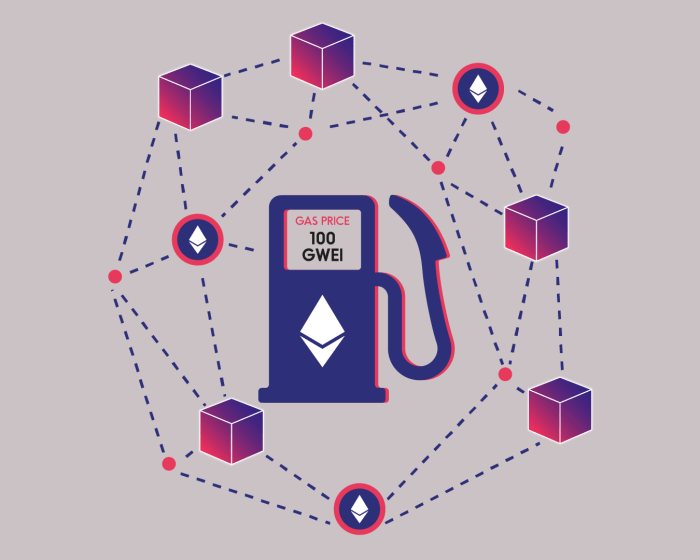Best wallets for Bitcoin, this introduction delves into the world of cryptocurrency storage solutions, offering insights on the most secure and user-friendly options available. From hardware to software wallets, explore the pros and cons of each to make an informed choice for safeguarding your digital assets.
Discover the essential security features to protect your Bitcoin, the importance of user-friendly interfaces, and tips on selecting a wallet that offers a seamless experience. Learn about backup and recovery options to ensure the safety of your funds in the volatile world of cryptocurrency.
Types of Bitcoin wallets
When it comes to storing your Bitcoin, there are several types of wallets you can choose from. Each type has its own set of advantages and disadvantages, so it’s important to understand the differences before making a decision.
Hardware Wallets
Hardware wallets are physical devices that store your Bitcoin offline, making them less vulnerable to hacking. Examples of popular hardware wallets include Ledger Nano S, Trezor, and KeepKey. The main advantage of hardware wallets is their high level of security, as they are not connected to the internet. However, they can be more expensive than other types of wallets.
Software Wallets
Software wallets are applications or programs that you can download onto your computer or smartphone to store your Bitcoin. Examples of popular software wallets include Electrum, Exodus, and Mycelium. The main advantage of software wallets is their convenience, as you can easily access your funds from your device. However, they are more vulnerable to hacking than hardware wallets.
Paper Wallets
Paper wallets involve printing out your private keys and Bitcoin addresses on a piece of paper. This method is considered one of the most secure ways to store your Bitcoin, as it is completely offline. However, paper wallets can be easily lost or damaged, so it’s important to keep them in a safe place. Examples of paper wallet generators include Bitaddress.org and WalletGenerator.net.
Security features
/image-stylishwork-ledgernano-5a019e3298020700370ac52b.jpg?w=700)
When choosing a Bitcoin wallet, it is crucial to prioritize security features to protect your digital assets. Understanding how encryption works and comparing the security measures of hardware wallets versus software wallets can help you make an informed decision.
Encryption in Bitcoin wallets, Best wallets for Bitcoin
Encryption plays a vital role in securing Bitcoin wallets by converting sensitive data into a coded format that can only be accessed with the correct decryption key. This ensures that unauthorized users cannot gain access to your private keys or transaction information. Strong encryption algorithms are essential for safeguarding your funds and personal information from hackers and cyber threats.
Hardware wallets vs. Software wallets
- Hardware wallets: Hardware wallets are considered one of the most secure options for storing Bitcoin. These physical devices store your private keys offline, making them less vulnerable to online attacks. Additionally, hardware wallets often come with additional security features such as PIN protection and passphrase support, adding an extra layer of defense against unauthorized access.
- Software wallets: Software wallets, on the other hand, are digital applications that can be installed on your computer or mobile device. While convenient, software wallets are more susceptible to malware and hacking attempts compared to hardware wallets. However, some software wallets offer advanced security features like multi-signature support and two-factor authentication to enhance protection.
Overall, hardware wallets are generally considered more secure due to their offline storage and physical verification requirements. However, software wallets can still be secure if proper precautions are taken, such as using reputable wallet providers and implementing strong security practices.
User-friendliness

User-friendly interfaces play a crucial role in Bitcoin wallets as they determine how easily users can navigate the platform to manage their digital assets. A wallet with a good user experience can make the process of sending, receiving, and storing Bitcoin more accessible and intuitive for both beginners and experienced users.
Examples of User-friendly Bitcoin Wallets
- Electrum: Known for its simplicity and ease of use, Electrum is a popular choice among Bitcoin users. It offers a clean interface and essential features for securely managing Bitcoin transactions.
- Exodus: Exodus is another user-friendly wallet that provides a visually appealing design and a straightforward setup process. It supports multiple cryptocurrencies and offers a built-in exchange feature for seamless trading.
- Trezor: While Trezor is a hardware wallet, its user interface is designed to be user-friendly and intuitive. It offers a secure way to store Bitcoin offline while maintaining ease of use for managing transactions.
Tips for Choosing a Wallet with Good User Experience
- Look for wallets with clear and intuitive interfaces that make it easy to send and receive Bitcoin.
- Consider the level of customer support provided by the wallet provider to assist with any issues or questions that may arise.
- Check for additional features such as multi-signature support, two-factor authentication, and backup options to enhance security and usability.
- Read user reviews and feedback to gauge the overall user experience and satisfaction with the wallet’s interface and functionality.
Backup and recovery options

In the world of Bitcoin wallets, backup and recovery options are crucial components to consider. These features ensure that users can safeguard their funds and access them in case of any unforeseen circumstances.
When it comes to securing wallet information, it is recommended to backup your wallet regularly and store the backup in a secure location. This backup should ideally be encrypted and protected with a strong password to prevent unauthorized access. Additionally, it is important to keep multiple copies of the backup in different physical locations to mitigate the risk of loss.
Recommended backup methods
- Creating a paper wallet: This involves printing out your private keys and wallet information on a piece of paper and storing it securely offline. This method is highly secure as it is not susceptible to hacking or digital attacks.
- Using hardware wallets: Hardware wallets are physical devices that store your private keys offline. They are considered one of the most secure backup options as they provide an extra layer of protection against online threats.
- Utilizing encrypted USB drives: Storing your wallet backup on an encrypted USB drive can also be an effective backup method. Make sure to keep the USB drive in a safe place to prevent loss or theft.
Comparison of backup and recovery processes
- Software wallets like Electrum and Exodus offer users the option to create a backup seed phrase during the wallet setup process. This seed phrase can be used to recover the wallet in case of loss or damage to the device.
- Cryptocurrency exchanges like Coinbase and Binance also provide backup and recovery options for users. These platforms usually offer the ability to set up two-factor authentication and recovery codes to secure accounts.
- Hardware wallets such as Ledger Nano S and Trezor have robust backup and recovery processes in place. Users are required to set up a PIN and recovery phrase during the initial setup, which can be used to restore the wallet in case of loss or theft.
Summary: Best Wallets For Bitcoin
In conclusion, choosing the best wallet for Bitcoin is crucial in safeguarding your investments. By understanding the different types of wallets, security features, user-friendliness, and backup options, you can make an informed decision to protect your digital assets. Stay informed and prioritize security in the ever-evolving landscape of cryptocurrency.
When it comes to investing in Bitcoin, it’s important to do your research and understand the risks involved. One of the first steps is to choose a reliable cryptocurrency exchange platform. You can learn more about how to invest in Bitcoin by following this comprehensive guide on How to invest in Bitcoin.
Interested in diving into the world of cryptocurrency? Learn how to invest in Bitcoin and start your journey towards potential financial growth. From setting up a digital wallet to understanding market trends, this guide will provide you with the essential knowledge to make informed investment decisions in the volatile world of Bitcoin.

